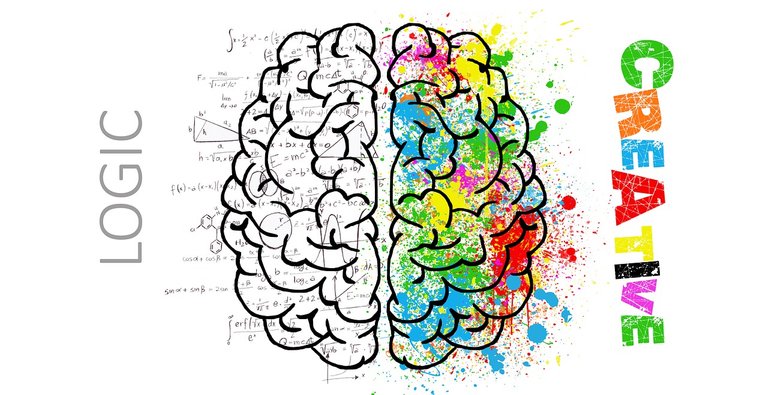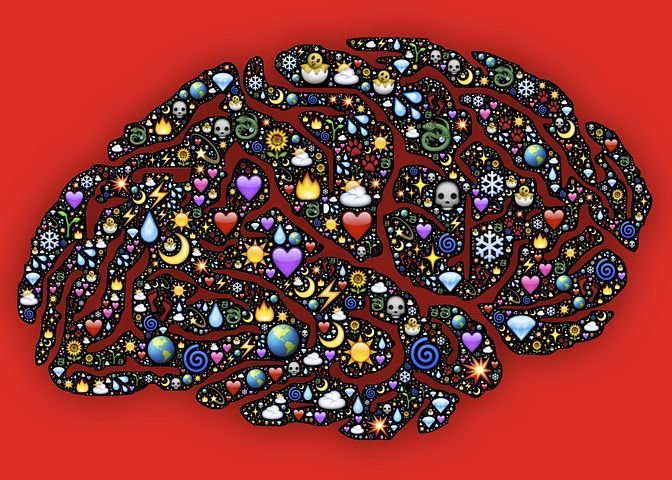 (Image Licence: PublicDomains. Pixabay)
(Image Licence: PublicDomains. Pixabay)
Introduction:
Imagine having the ability to speed through books in about an hour, reading the right and left pages with the both eyes simultaneously.
Imagine being able to memorize a wide range of information and recalling vividly the contents of about 12,000 books ever read. But wait!- Imagine the irony of not being able to carry out basic motor functions like just buttoning your own shirt due to some neurodevelopmental developmental disorders. Even with these abilities. It sounds weird right? If you can paint this picture,you just saw Kim Peek,one of the inspiring legends for the movie,"the rain man".
If that blew you away,which I imagine it did,picture this - Youre stepping out of your favorite coffee shop,singing away with your earbuds plucked in and then boom! The last thing you remember vaguely is being rushed into the Emergency Room and then a black out. You recover from this(thankfully) only to go home and discover that you suddenly can play the piano like a pro. You know what's even better? - you've never taken piano lessons.
Previously known as "idiot savant', the term was used to describe this condition by John Langdon Down in 1887 as it was associated with severe intellectual disabilities. However,it was later changed to savant syndrome as it was discovered that not all those diagnosed with this condition were either autistic or had severe developmental disabilities.
Well..what are the chances that you have Savant Syndrome?
Well, there are no precise statistics to account for the number of people with Savant Syndrome, but after several years of reports and observations,it has been shown that;
- The condition is rare but about one in ten autistic persons show some savant skills
- Approximately 50% of children with Savant Syndrome are autistic and the other 50% have some form of neurodevelopmental disorder.
It has also been shown that the Syndrome is more common in males than in females,in a ratio of 5-6:1.
How do you "get" Savant Syndrome?.  (License:Public domains. Pixabay)
(License:Public domains. Pixabay)
Savant syndrome can be congenital or acquired. This means that you could either be born with it as a result of a perinatal pathology or you could just develop it,as a result of an organic brain disease or actual trauma to the brain.
In either cases, there is a common pathology affecting the left hemisphere of the brain.
Though there is no concise explanation for the development of this rare disorder,there are assumptions as to what really goes wrong.
One assumption,based on imaging,observation and neuropsychological studies describes a left brain dysfunction with "right brain compensations".To understand this,i will briefly remind us of the functions of the left and right hemisphere of the brain.
Normally, the left hemisphere of the brain is responsible for the analytical thinking of a person,language,logic & reasoning,thinking in words,science and mathematics amongst other functions while right brain is responsible for creativity,music,art, visualization of feelings and thoughts amongst other functions.
What are the skills these "geniuses" possess?
It is important to know that the Savant skills occur in a narrow range of special abilities in the following major categories; Music(usually performance on instruments,most often the piano), Mathematics, Mechanical or Spatial skills(including the ability to measure distance precisely without the use of instruments and ability to construct complex models),Art( usually drawing,painting or sculpting) and Calendar Calculating abilities. Calendrical savant (or calendar savant) is someone who – despite having an intellectual disability – can name the day of the week of a date, or vice versa, in a few seconds or even a tenth of a second, on a limited range of decades or certain millennia..(Well,imagine we all could do that. We'd not have a problem with history.)
What happens in the brains of Savants? Why is it more common in males than in females?  (License: Public domain.Pixabay)
(License: Public domain.Pixabay)
Since we're well aware of the functions of the brain and the skills possessed by the Savants, their skills are explained as follows:
- In explaining this finding, "Geschwind and Galaburda" (1987) in their work on cerebral lateralization pointed out that the left hemisphere completes its development later than the right hemisphere and is subject to prenatal influences,which could be detrimental.
- In the male fetus,circulating testosterone,which could reach high levels can slow growth and impaired neuronal functions in the vulnerable left hemisphere.
- Due to the above two occurence, there is then a compensatory growth in the right brain due to damage to the left brain( either as a result of impaired development which is seen in congenital Savant Syndrome or a result of actual injury in acquired Savant Syndrome). This sort of causes a shift of dominance and enhances skills associated with the right brain.
- This explains the high male: female ratio seen in this syndrome and even in autism itself as there is a left hemisphere dysfunction involved.
Newer Findings: Savant Syndrome and Dementia  (License:Public domain. Pixabay)
(License:Public domain. Pixabay)
Well,in other news, it is also interesting to know that newer studies have shown a new savant-like artistic and other skills in dementia patients.
This recent finding regarding savant skills is a 1998 report by Miller and coworkers who described five patients with frontotemporal dementia (FTD) who acquired new artistic skills with the onset of dementia of this particular form. They had traits which were consistent with those of savants. However, the "genius" in these five patients was visual, not verbal. Episodic memory was preserved but semantic memory was impaired. There was intense preoccupation with the art skills. Imaging studies showed a predominance of dominant-hemisphere (left-brain) injury consistent with the savant hypotheses above.
The authors of this study hypothesized that selective degeneration of the anterior temporal and orbitofrontal cortex (particularly in the left hemisphere) decreased inhibition of visual systems involved with perception, thereby enhancing artistic interest and abilities". This would represent a particular form of brain function compensation in undamaged areas of the cortex and other areas and could be part of the right brain compensatory process in savants as well as in these five dementia patients.
What is the semantic and episodic memory?  (License:Public domain.Pixabay )
(License:Public domain.Pixabay )
So, the semantic memory is more of a portion of long-term memory that processes ideas and concepts that are not drawn from personal experience and basic facts acquired over a long time.
Semantic memory includes things that are common knowledge, such as the names of colors, the sounds of letters, the capitals of countries,etc.
However, the episodic memory is the memory of autobiographical events (times, places, associated emotions, and other contextual who, what, when, where, why knowledge) . Take for instance you remember exactly what took place on your 5th birthday you have an episodic memory. Its concerned with a past personal experience taking place at a particular time and place.
These hypotheses accounts for the "science" behind what really happens in the brain of Savants . Fascinating right?
I present to you,notable people with savant syndrome. Just in case you'd like to look them up;
Temple Grandin- Professor of animal science.
Kim Peek- megasavant.
Alonzo Clemons, acquired savant sculptor
Daniel Tammet, author and polyglot
Derek Amato, composer and pianist
Derek Paravicini, blind musical prodigy and pianist.
Is there a treatment for Savant Syndrome?
Well,Savant syndrome isnt really a disease but more of a superimposition of extraordinary skills due to a basic dysfunction of the brain or a Central Nervous System injury. Therefore the “treatment” would be tackling the underlying condition. For instance,in a CNS disease,treating the symptoms would be one way  (License: Public domain. Pixabay)
(License: Public domain. Pixabay)
The special skills and abilities the savant demonstrates can be used as a tool in overall treatment and rehabilitation efforts. This is more like focusing on the positives to lessen effects of the disabilities. There is an ultimate improvement in social relations,daily life and a greater dependence on one's self..
In conclusion;
In conclusion, I really think there's an ability in every disability. Its more like nature compensating for losses. It's amazing right? Savant syndrome has been artificially replicated using transcranial magnetic stimulation to temporarily disable this area of the brain. In my opinion,if these abilities could be accessed irrespective of underlying disabilities,well and without actually having to incapacitate the left hemisphere,I'd like yo say that we'd have achieved a major milestone in science. It would indeed be a key to unlocking the "advanced memory" in the brain,utilizing it to its fullest potentials.
References:
- Darold A. Treffert, MD. "The Autistic Savant". Wisconsin Medical Society.
2.^ a b c d e f g h i j k l m n o p q r s t Treffert, D. A. (2009). "The savant syndrome: An extraordinary condition A synopsis: Past, present, future". Philosophical Transactions of the Royal Society B: Biological Sciences. 364 (1522): 1351–7.
3.Geschind N., Galaburda A.M. MIT Press; Cambridge, MA: 1987. Cerebral lateralization: biological mechanisms, associations and pathology.
4.https://en.m.wikipedia.org/wiki/Savant_syndrome
5.https://www.google.com.ng/amp/s/www.rd.com/health/conditions/savant-syndrome/amp/
6.https://www.ncbi.nlm.nih.gov/pmc/articles/PMC263
amazing your block,...
and your block simple fun for read.
you received an up vote from danlupi with voting power of 10.84%. Estimated dollar amount of $0.44
Thank you fachru21..
welcome guys,